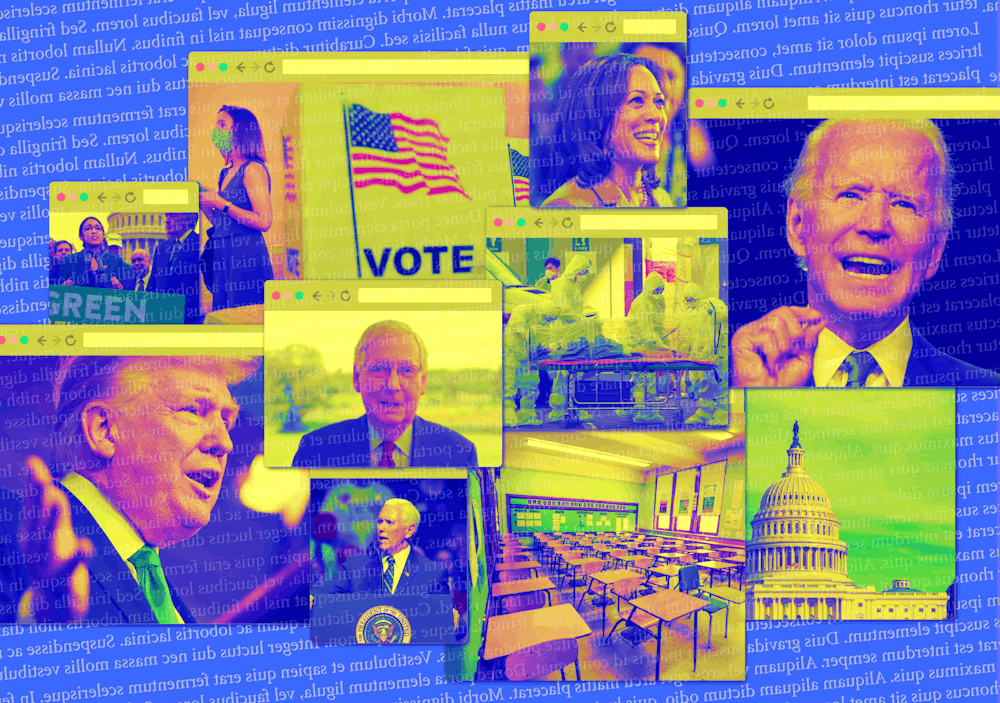Many Americans are aware of the existence of unsupported election narratives and believe them to be true, an IU survey conducted by IU’s Observatory on Social Media found.
The sample size of the first wave was 597 participants, American adults ages 18 to 88. The project, which examines the extent to which false narratives about the 2020 presidential election are believed, will include six waves of surveys and reports.
The statements examined in the first wave were:
- Joe Biden is not mentally fit to be president.
- Kamala Harris is not a natural-born U.S. citizen.
- Dr. Anthony Fauci funded a lab in Wuhan to develop the coronavirus.
- Joe Biden’s family has illegal business ties with China.
- Mail-in ballots cause election fraud.
IU Ph.D. student Harry Yan, a Knight Foundation Fellowship research assistant for OSoMe, said his involvement in the project includes groundwork for the survey design, data analysis and visualization for the report.
The commonly spread false election narratives come from election campaigns, low credibility news sources, social media and our own cognitive biases, Yan said.
The first wave of this project, conducted from Aug. 20 to Sept. 7, found nearly 80% of participants to be aware of at least one of the false narratives.
The responses were collected from an online panel through Qualtrics. About 60% of the participants believed at least one of the narratives was true, while about 39% did not believe any of the claims.
46% of participants believed the narrative that mail-in ballots cause election fraud.
James Shanahan, dean of The Media School, said false election narratives are easily amplified through social media and sometimes even propagated by political figures.
“I think that narratives come from the places they’ve always come from, from people who have interest in them," Shanahan said. “What’s different now is the ability for them to go viral."
The study found self-identified Republicans and Independents were more likely to believe all of the narratives than Democrats.
Shanahan said historians have found a link between conspiracy theorists and political-right thought, but there are plenty among the left as well.
Shanahan said he believes false election narratives will have some effect on the outcome of the election. Over the following weeks leading up to the election, some narratives may start to fade while others remain strongly believed, he said.
As the project continues, surveys in the coming weeks will include strongly believed narratives while also introducing new ones, Shanahan said.
Betsi Grabe, a Media School professor, co-author of the study and co-leader of OSoMe, said the current state of our country is fueling the spread of these unsupported narratives through social media in an IU press release.
“Democracy hinges on well-informed citizens to select a president,” Grabe said. “And in a post-election era, disinformation narratives, like the ones we are tracking, have the potential to undermine the collective resilience of our nation to rebound on medical, economic and political levels.”
An unprecedented observation of unsupported election narratives is the use of misinformation in President Donald Trump’s campaign strategy, Yan said. He said people are more likely to believe false narratives about the opposite political party due to the increase of political polarization over the past years.
Yan said he thinks it is too early to say whether these narratives will change swing voters' opinions and therefore the outcome of the election.
“Misinformation changes the way we see politics and changes the way we participate in elections,” Yan said.






